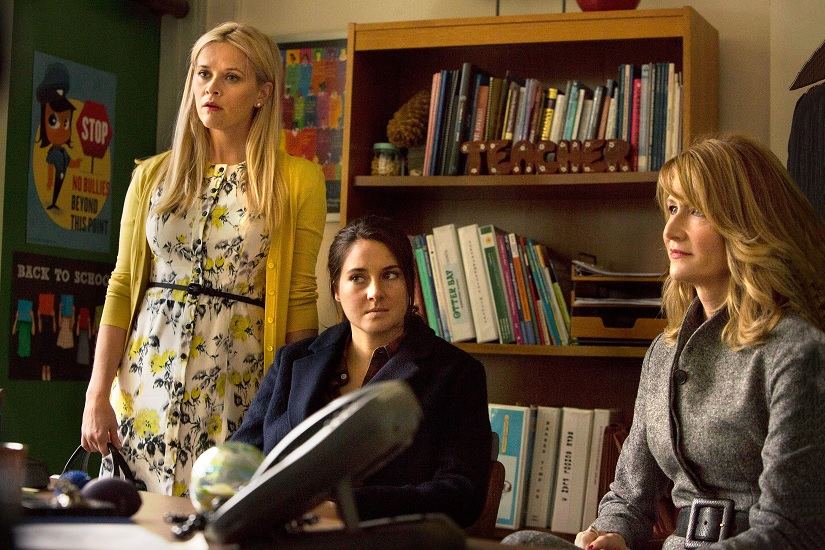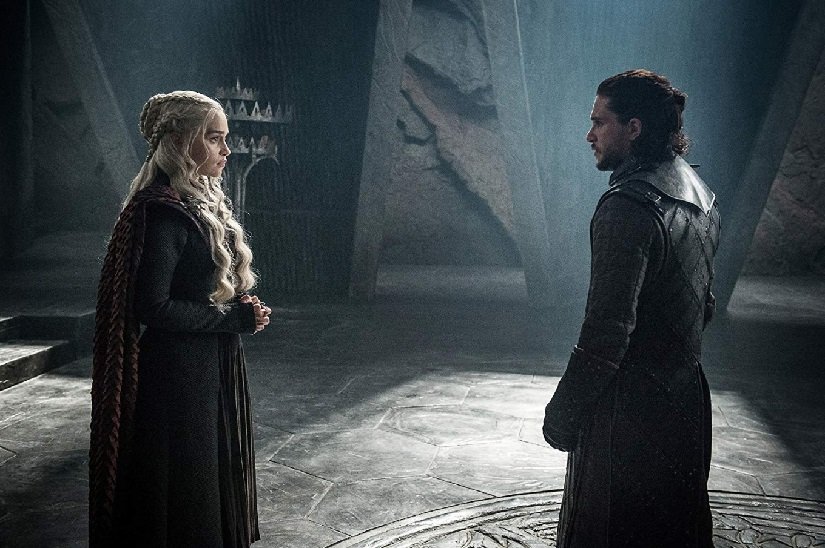Six weeks ago, I geared up in excitement to catch the second season of Big Little Lies. The years of scepticism around second seasons and sequels had rolled away into some remote quarter of my mind the minute it was announced that Meryl Streep was being thrown into the mix. I woke up a little earlier that Monday morning, made myself lots of evil looking black coffee and bounced off the walls in anticipation as I kept refreshing the feed to see if the episode had arrived. This was going to be epic.
That was then.
This is now.

Reese Witherspoon, Shailene Woodley and Laura Dern in Big Little Lies Season 2. HBO
That scepticism has steadily come back in large doses over these six weeks, and when Big Little Lies came to a whimpering end earlier this week, it left me feeling annoyed; someone’s happy ending had really put me off. But I’m no sadist — I just hate it when people decide to ruin a good thing by taking it a tad too far. Was there really the need of a second season when the HBO show had wrapped it all up so beautifully in the first? Sure, I’d love to watch the misadventures of Celeste, Madeline, Jane, Bonnie and Renata for another ten seasons but can someone really keep them interesting enough for that long?
And this wasn’t the first time it’s happened. By far.
Stranger Things has lost the charm it had; maybe you can ride on the novelty factor for only so long. Despite amping up the retro quotient, this last season had its moments but has overall been just a little blah. And, then there was Killing Eve, which returned with a second season that promised so much but didn’t quite deliver. Phoebe Waller-Bridge gave us a great second season of Fleabag but fell a little short when the stage was a lot bigger, and the expectations too. That’s where the problem probably lies. The bigger the show, the bigger the size of an emotionally involved audience, the bigger are the expectations.
A lot has been written in recent times about parasocial relationships. While the larger field of study has existed for over half a century and deals with the psychology of individuals and their imaginary relationships with celebrities, an offshoot has emerged in recent years studying the interactions of people with their favourite fictional characters.
It’s not like older generations were any different; it’s the dynamics of the interaction that’s changed. We’re swamped with content today, we binge watch and then rewatch, we analyse and question, and then ask questions of these fictional characters on their social media accounts about their imaginary lives. Halloween’s become a year-long pastime for a few, and cosplay is estimated to be a $45-billion industry. All sound a little far-fetched? Well, Homer J. Simpson has 2.1 Million followers on Twitter. Go figure.
Some of these interactions can seem like obsessive behaviour, and when something becomes a legitimate source of income for therapists, you know its impact is bound to snake its way into the source material.

Emilia Clarke and Kit Harrington in Game of Thrones Season 8. HBO
It’s expectations of this magnitude that create the kind of pressure on showrunners that’s never been seen before. In the days of television, you’d be happy to see your favourite show making a return, that’s it. No questions asked. No analysis. No criticism. Just pure joy. Today, in the age of peak TV, watching one show means picking it over a dozen others languishing on your watchlist, and it doesn’t take much for networks and platforms to cancel shows, even when they haven’t finished telling their stories. The stakes are that much higher for the cream of the crop, and the need to produce content that matches the standards set in previous seasons means they’re constantly fighting that battle with themselves. This is where shows like Game of Thrones, House of Cards and Black Mirror have come in for criticism — not because the content itself was bad, but because it wasn’t as good as people had come to expect. Consistency is the biggest expectation of them all.
Some shows recover, some never do. And then there are those whose journeys have been inconsistent but draw you back all the same, because there’s always something new. The one show that inevitably has me behaving like a sine curve, going from rave to rant and back, is another with ‘lotsa chicks with lotsa attitude’. Orange Is the New Black had a great opening season, and it took something special to top that. And they did, by widening the range of characters and bringing in darker themes. It was great writing, backed by some great performances. The show’s magic lies in the fact that everyone watching ends up having their own favourite character(s) and they aren’t necessarily the ones you think are ‘playing the lead’. That’s probably why the third season was such a let down, when the story veered back to Piper’s life, who pretty much is the most boring character on the show. But then the fourth season produced some of the show’s best episodes and balance was restored in the universe again.
When the final season of Orange Is the New Black comes out this week, guess who will be watching.
Updated Date: Jul 28, 2019 09:37:23 IST



















![[Book Review] The Blade Itself (The First Law Trilogy) by Joe Abercrombie](https://bendthekneegot.com/wp-content/uploads/2018/01/1516047103_maxresdefault-218x150.jpg)


















